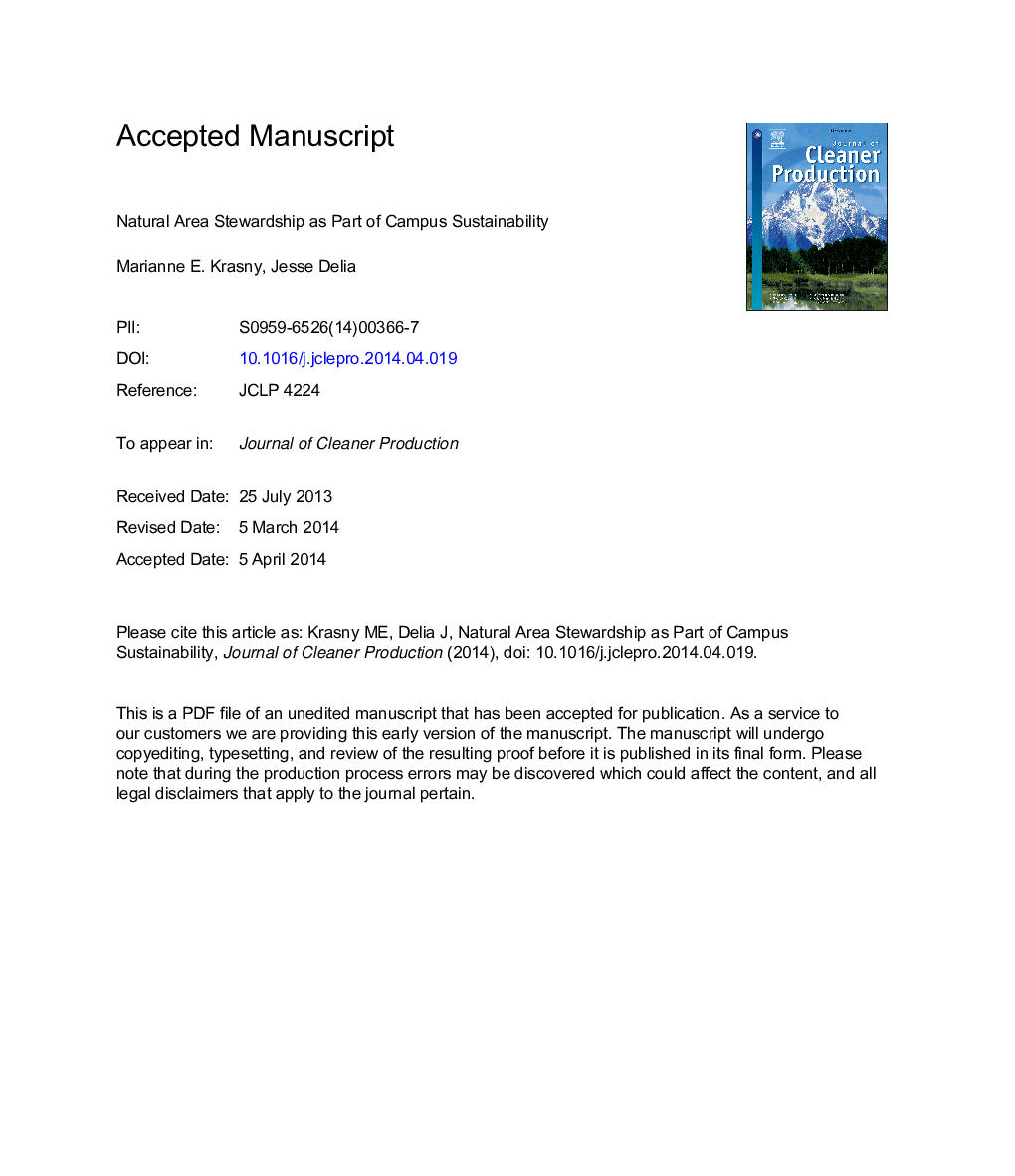| Article ID | Journal | Published Year | Pages | File Type |
|---|---|---|---|---|
| 8103151 | Journal of Cleaner Production | 2015 | 25 Pages |
Abstract
Despite a growing body of evidence that spending time in nature through leisure, stewardship, and related activities is critical to the healthy development of humans and can lead to pro-environmental behaviors, higher education sustainability initiatives pay scant attention to the human-nature relationship. This relationship can be explored through constructs such as sense of place, as well as scales such as nature relatedness. Based on a literature review and interviews with members of a student organization focused on voluntary stewardship of campus open space and natural areas, we argue for a greater emphasis on student involvement in nature-based activities in university sustainability efforts. In particular, our exploratory study of a university student organization reveals that nature-based stewardship not only provides direct benefits to the campus environment (e.g., through tree planting), but also can enhance students' sense of place and play a role in students' mental well-being. Further, the literature and our results suggest that whereas sense of place and related well-being may foster conservation behaviors, the relationship between stewardship and unrelated environmental behaviors is less clear. Nature-based stewardship provides a complement to other aspects of sustainability, such as those focused on reducing consumption and energy use, and supports a holistic approach to university sustainability initiatives.
Related Topics
Physical Sciences and Engineering
Energy
Renewable Energy, Sustainability and the Environment
Authors
Marianne E. Krasny, Jesse Delia,
